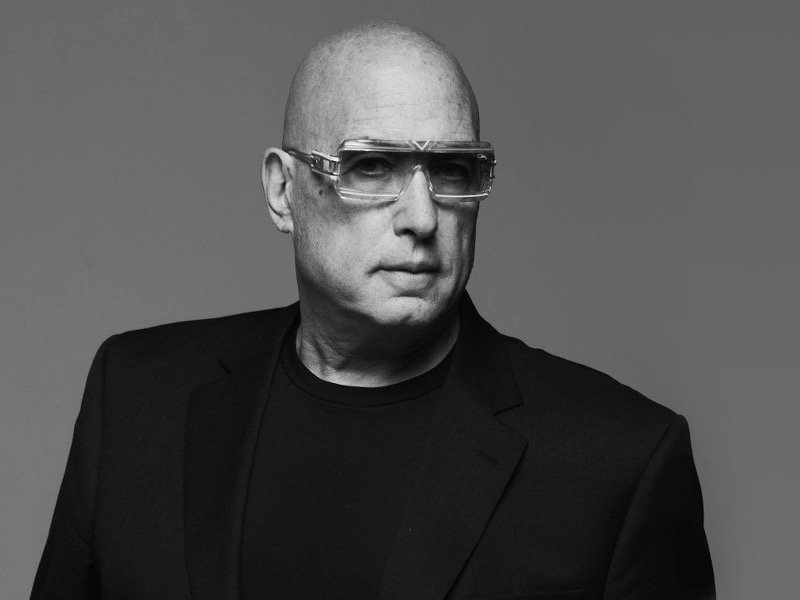When David Bowie hired pianist Mike Garson in 1972, the contract was for eight weeks of work. Garson accompanied Bowie’s glam-rock band on a U.S. tour, playing songs from the "Ziggy Stardust" album. An accomplished classical and jazz piano player, Garson seemed an unlikely choice to be in a hard rock band that wore spandex jumpsuits and favored mascara, rouge and glitter to excess.
"That’s precisely why David chose me to be part of his band," Garson said. "He loved that I played something other than rock and roll."
At some point during their 56 days together, Garson and Bowie bonded musically to form a collaboration that lasted well beyond the initial eight-week contract. He remained a member of Bowie’s various bands for the next 35 years, playing on 20 albums and all of the singer’s tours through 2004.
Garson made his first appearance in Milwaukee in October of 1974, when Bowie’s "Diamond Dogs" tour came to town. The Milwaukee Journal reviewer was underwhelmed by the show, saying, "Bowie worked through soul versions of 'Rebel, Rebel,' and the rest, unhampered by a distorted sound system. Bowie, live, proved to be a terrible musician, but an incredibly good imposter."
After Bowie’s death in 2016, Garson was approached to participate in a series of concerts to honor the legacy left behind by one of rock’s true legends. The "Celebrating David Bowie" show comes to The Pabst Theater on Thursday, Feb. 22, but before then, Garson spoke with OnMilwaukee to discuss his career with Bowie and what fans can expect from the upcoming concert.
OnMilwaukee: David Bowie’s music spanned five decades. How are you able to represent that in one concert?
Mike Garson: It’s not easy, as you indicated. David left close to 300 songs when he passed away. We’ve got about 45 of those in our repertoire, and we’ll play about two dozen of them on any given night. The set list covers all phases of his career, because the fans wouldn’t be satisfied with anything less. We go from "Changes," "Life on Mars" and "Space Oddity," to numbers from the "Ziggy Stardust" and "Aladdin Sane" albums. The show also contains songs from "Station to Station," "Let’s Dance" and "Heroes," right though to David’s most recent work. We mix them up from night to night because it keeps the band fresh. It’s very important to me to keep everyone of their comfort zones on stage. It’s the best way to push the band forward. We get better with every show.
How much rehearsal was required to get the band ready to go on tour?
We worked between eight and ten hours a day for a week. We’ve got former Bowie sidemen like Earl Slick and Gerry Leonard on guitar and Carmine Rojas on bass. It all came together very well.
That’s a great story about how you came to be in Bowie’s band.
Let me tell you, the whole thing happened very fast. I got a call from his manager one day, and he said, "David Bowie wants to hear you play some piano. Can you be here in 20 minutes?" I didn’t even know who David was at that point! But I got someone to babysit for my kids and I rushed from Brooklyn to the RCA building in Manhattan.
I didn’t have time to listen to any of the records, so [guitarist] Mick Ronson put the music for "Changes" on the piano. I played the song from a cold read, and Bowie said, "You’re hired." He didn’t want a rock and roll piano player. He wanted something to make him sound different from the Beatles and the Stones. He took a chance with me and it worked.
How does it feel to play those early songs without Mick Ronson?
How does it feel? Well, it hurts, if you want to know the truth. Mick was the perfect sideman for David. He was a fabulous guitar player and when the two of them sang together, it was fantastic. When they broke up, it was very ugly. But I worked with Mick on his solo album, "Slaughter on 10th Avenue," and that is one of my best memories of him. His rendition of that song is amazing! But, there are times when I’ll think to myself, "Both of these guys are dead, and I’m playing their songs." Psychologically, it’s painful, but you also have to stay in the moment.
Can you name some of the artists who influenced you as a young musician?
Do you have, like, another hour? (laughs) There are so many. My parents, first of all. After that, Arthur Rubenstein, Peter Nero, Errol Garner, Oscar Peterson, John Coltrane, Miles Davis. Also, Chopin, Mozart, Bach, Stravinski, maybe a few others. On the rock side, Leon Russell, Dr. John, and Ian Stewart and Nicky Hopkins from the Rolling Stones. Oh, and Jerry Lee Lewis. I do a little homage to Jerry on "Watch That Man."
What are some of your other projects?
The success of the "Celebrating David Bowie" shows means I’ll be performing in those for at least the next five years, but probably longer. We’ve got commitments to play in Japan, Australia and a return to Europe already on the books. That will give me time to do a few of my own classical and jazz concerts. I also do residencies teaching at various schools.







